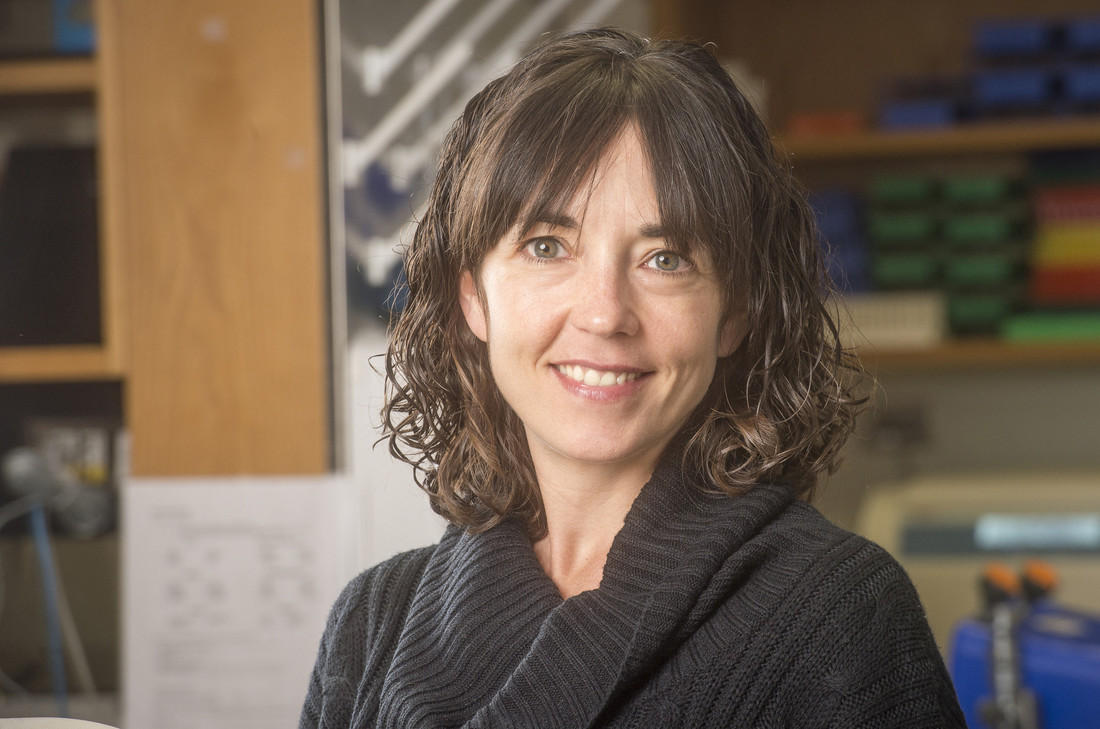
 Beatriz León, Ph.D., associate professor in the Department of Microbiology, is the latest winner of the School of Medicine’s Featured Discovery. This initiative celebrates important research from School of Medicine faculty members. Dr. León discovered that impaired tumor-necrosis-factor-alpha-driven dendritic cell activation limits lipopolysaccharide-induced protection from allergic inflammation in infants. This knowledge, published in Immunity, was aimed towards understanding how allergen-induced airway inflammation and asthma are initiated and amplified. Read more from UAB News here.
Beatriz León, Ph.D., associate professor in the Department of Microbiology, is the latest winner of the School of Medicine’s Featured Discovery. This initiative celebrates important research from School of Medicine faculty members. Dr. León discovered that impaired tumor-necrosis-factor-alpha-driven dendritic cell activation limits lipopolysaccharide-induced protection from allergic inflammation in infants. This knowledge, published in Immunity, was aimed towards understanding how allergen-induced airway inflammation and asthma are initiated and amplified. Read more from UAB News here.
The School of Medicine communications staff sat down with Dr. León to gain insights about her research, UAB and the science community.
Q: What compelled you to pursue this research?
Studies in my lab are aimed towards understanding how allergen-induced airway inflammation and asthma are initiated and amplified. Murine models of allergic respiratory diseases induced by natural aeroallergens (such as house dust mite) are widely used in the lab to elucidate immunological mechanisms involved in the pathogenesis of asthma. The majority of such research has been conducted in adult rodents. However, we know that the majority of adults who have chronic-relapsing asthma had their first symptoms early in life, implying that the outcomes in adult asthma are determined in early childhood. Therefore, in this research, we compared the allergic responses between very young mice and adult mice to explicitly ask whether the risk of developing allergy was higher during infancy and the underlying mechanism of this increased susceptibility during this time-window.
Q: What was your most unexpected finding?
In the mouse model, it is well known that airway exposure to house dust mite allergens (HDM) triggers allergic airway inflammation and asthma. Interestingly, it was known that if the allergen was given simultaneously with a dose of bacterial products such as lipopolysaccharides (LPS), mimicking the exposure of allergen in a “less hygienic” environment, the mice did not develop the asthma-like disease. We found that the amounts of LPS needed to prevent HDM asthma differed greatly between very young mice and adult mice. A very low dose of LPS, in combination with the HDM, was sufficient to prevent asthma in adult mice; but that low dose did not prevent asthma in infant mice. Instead, very young mice needed ten-fifty times as much LPS to prevent HDM asthma.
Q: What is your research’s relevance to human disease?
Over the past two centuries, sanitation, clean water, clean food, and the promotion of hygiene practice have played crucial roles in reducing infectious disease. Following the introduction of antibiotics and vaccines, it seemed possible that infectious disease might someday become a thing of the past. In contrast, the global prevalence, morbidity, mortality, and economic burden associated with asthma have increased over the past decades. Our findings propose that the decreased exposure to environmental microbial products, particularly at a very early age (as a consequence of the higher standards of personal cleanliness and cleaner homes), has to lead to an increased risk of allergic sensitization and disease. In other words, exposure to relatively high levels of environmental microbial products, but specifically during early life, confers protection to the development of allergic diseases.
Q: How has being at UAB and living in Birmingham affected your research?
Scientific research is demanding and sometimes to maintain work-family balance is challenging. Living in Birmingham and working at UAB provides an excellent frame for work-life balance with low commute time, a low-stress city, and a friendly environment at work.
Q: What do you find makes the science community here unique?
Scientific research has always been a collaborative undertaking, and this is particularly true today as we study immune responses in more and more complex systems. Understanding this complexity requires experts in many different domains. In short, these days, success depends more on one's ability to collaborate than ever before. The science community at UAB has created an understanding environment that promotes the interaction between colleagues and encourages collaborations and team-work.